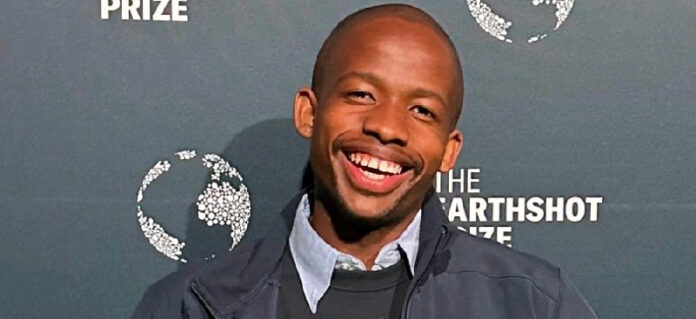When refuse trucks stopped arriving in Postmasburg’s Boichoko community, the sight of burning rubbish piles became routine.
But for 11-year-old Lesedi Monnanyane, the smoke signalled more than just pollution; it represented untapped potential.
“There’s something fundamentally wrong with us burning all this waste,” he said.
“We’re destroying value and harming our health at the same time.”
That childhood observation ignited a lifelong pursuit: to transform waste and alien biomass into opportunity, create work, and reimagine how mining-dependent communities can transition from extraction to regeneration.
Monnanyane’s entrepreneurial journey began long before he understood the term “sustainability”. His first venture was offering to clean neighbours’ yards for pocket money.
A crucial lesson came from his aunt, who collected bottles for recycling, teaching him that one person’s trash could be another’s treasure.
By 15, he had officially registered Sky-High Kaila Enterprise, starting with simple waste collection. Using prize money from school science and entrepreneurship fairs, he began bootstrapping his business.
“I like solving problems,” he says. “Helping people and improving the spaces we live in – that’s what excites me.”
The trajectory of his enterprise changed dramatically when he discovered Anglo American’s Zimele Hub in Postmasburg. “I walked in out of curiosity and stayed,” he laughs.
Through Zimele’s enterprise-development programme, he gained mentorship, business training, and, crucially, a R1.3-million loan.
This structured support was a catalyst. Sky-High expanded its workforce to more than 30 people and invested in new technology, including a chemical mixer for eco-friendly liquid products, and a rapid composting system that transforms food waste into fertiliser within 24 hours – a process that normally takes months.
Within three years, Lesedi had fully repaid the loan, proving that investing in young entrepreneurs from rural communities is not a risk but a solid opportunity.
“Lesedi represents the transformative power of combining entrepreneurial drive with structured support,” says Larisha Naidoo, head of Anglo American Zimele.
“He shows how innovation, when nurtured in the right ecosystem, can turn community challenges into sustainable livelihoods.”
Today, Monnanyane’s vision extends far beyond waste collection. Through the Sky-High ecosystem, he is developing modular bioenergy hubs that convert alien invasive biomass, organic waste, and hemp into products like hemp bricks, synthetic fuels, and biochar.
These hubs are designed to produce clean energy, restore soils, save water, and generate environmental credits, turning waste streams into tangible economic value.
Now completing postgraduate studies in sustainable development at Stellenbosch University, Monnanyane (24) is deepening his understanding of how research, finance, and entrepreneurship can intersect to create regenerative economies.
“I fear the day when mining operations close down in Postmasburg,” he admits. “That’s why I’m working to help build thriving entrepreneurial ecosystems that can sustain communities beyond mine closure.”
His work, which has earned him a place among The Earthshot Prize’s Top 100 Young Climate Leaders in Africa (2024) and a nomination again for the 2025 prize, explores how degraded landscapes can be repurposed using circular-economy principles.
“I see these places not as the end of something,” he says, “but as fertile ground for new beginnings.”
For aspiring entrepreneurs, his advice is grounded in his own experience: “Just start. You don’t have to have it all figured out. Clarity comes through action.”
He also emphasises the importance of data: “Document your impact. Track your journey. Data is how you prove your value. It turns effort into evidence and evidence into trust.”
From a small village in Postmasburg to international recognition, Lesedi Monnanyane is proving that with vision, drive, and the right support, regeneration is more than a theory – it’s a viable business model that can replace waste with worth and transform landscapes of despair into possibility.




